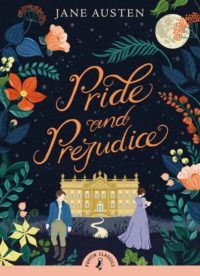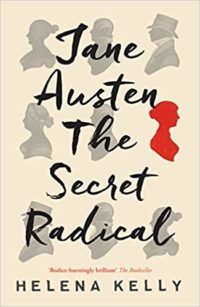The opening line to Jane Austen’s most famous novel is one of the best known lines in literature, and for good reason. It’s snappy, it’s memorable, and it perfectly sets up the story that is about to unfold in Pride and Prejudice – a romance that follows the ever-popular “hatred (or at least disdain) to love” journey, whilst poking subtle, satirical fun at the society it’s set in. It’s a quote so famous that it’s used as a basis for commentary on nearly everything, with the nouns being swapped in to fit the topic. The line has been used in everything from the parody novel Pride and Prejudice and Zombies (“it is a truth universally acknowledged that a zombie in possession of brains must be in want of more brains”) to articles that pick apart the use of famous quotes themselves (such as this article by The Telegraph, with the rather meta title ‘It is a truth universally acknowledged that great words will be misquoted’). Reading the Pride and Prejudice first line, Austen’s voice comes through loud and clear. We know right from the get-go that Pride and Prejudice is going to be a wry look at the marriage market of the Regency period, and the cut-throat scramble between upper-class women to secure that “single man in possession of a good fortune”, and with it, her own future. It hints at the stakes that exist for the Bennett family; in a social setting where women must marry well to avoid destitution, having to find appropriate matches for five daughters is an Olympian-level challenge. Austen acknowledges these high stakes, while quietly mocking the fact that this scramble to marry has to exist at all. After all, despite living in the same social circle as the Bennett family, Austen never married, built a solid (if necessarily secret) writing career, and used her work to critique the conservatism and hypocrisy of her time, something explored in Helena Kelly’s recent book Jane Austen, The Secret Radical. Perhaps one of the reasons that Pride and Prejudice‘s first line has endured in the public consciousness is that this pressure to marry still exists for women today, albeit slightly changed. Think of the number of Hallmark movies out there where a high-powered career woman learns that the thing she’s really missing in her life is the love of a good man – while her financial future is secure, her projected emotional future, we’re supposed to believe, is as bereft of that as one of Austen’s lonely maiden aunts. The possibility that a career itself can be fulfilling isn’t considered in the kind of stories that draw on the surface of Pride and Prejudice without looking at the social critique that lies beneath. And as many women know, the real world has internalised this narrative (days after I’d finished my PhD, I was chatting to an acquaintance in my university cafe, who made the comment “so I suppose you’ll be getting married now?” I wasn’t even dating at the time). The first line of Pride and Prejudice has kept its place as a popular quote not only because it’s a great satirical comment on social expectations of women, but also because, as in Austen’s time, there’s a fair chunk of people who still don’t get the irony. Another reason why Pride and Prejudice‘s first line has endured so well is because, simply, it’s fun. It’s a playful line that, in turn, is easy for writers to play around with. Modern-day Bennett Girl Bridget Jones comments “It is a truth universally acknowledged that when one part of your life starts going okay, another falls spectacularly to pieces”, something any twenty- to thirtysomething can relate to. Terry Pratchett, who was sometimes “accused of literature” and sometimes sneered at by critics who claimed that his works were no such thing, used the line to flip a jovial bird at both camps in his book Snuff: “Vimes thought for a moment and said, ‘Well, dear, it is a truth universally acknowledged that a man with a lot of wood must be in want of a wife who can handle a great big—’” No matter what the medium, there’s a writer out there who’s used the line, whether it’s being adapted for a tweet or used as a light-hearted introduction to a web page. Having a stonking good first line is one of those pieces of writing advice that everyone can agree on, and with Pride and Prejudice, Austen proved that it’s possible to write a first line that people will remember for hundreds of years. It’ll be interesting to see what kind of truths will be universally acknowledged in the years to come. For a more melancholy famous line, read Book Riot’s exploration of The Last Line of The Great Gatsby. If you want more pithy Austen goodness, look at our Best Pride and Prejudice Quotes.


